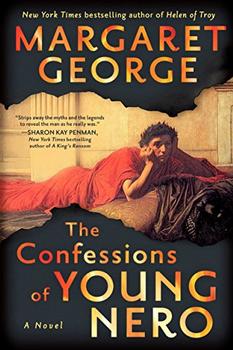Summary | Excerpt | Reviews | Beyond the book | Read-Alikes | Genres & Themes | Author Bio

A Novel of the Roman Empire
by Ruth DownieRuth Downie's entertaining first
novel is set in Roman Britain sometime early in the
2nd century AD. The Roman conquest of Britannia was completed about 30 years
earlier, and the fall of the Roman empire won't be
for at least another 200 years. In other words,
having divided and conquered the tribes of
Britannia and built Hadrian's Wall to keep the
inhabitants of Scotland at bay, the Roman soldiers of the 20th Legion are
sitting pretty without a lot to do except wait for
payday (every 3 months), flirt with the native girls
and get into trouble.
Into this setting steps the harassed, impoverished
and newly divorced Gaius Petrius Ruso, fresh off the
boat from Africa, newly appointed medicus to the
20th Legion. His hope is that this damp little
island outpost will afford him the breathing space
he needs to juggle the multiple debts left by his
father, so that his brother and family can keep their
small farm in Gaul, and a roof over their heads. His
objectives are single-minded: Keep his head down; save money; get a promotion.
What he doesn't need is trouble, but trouble finds
him, and as we all know, trouble comes in threes.
First, in a weak moment he buys an injured slave
girl from a sadistic slave trader. The last thing he
needs is the maintenance cost of an injured slave
who refuses to talk and can't cook; but if she does
get well there's a fighting chance he can recoup his
investment by selling her, perhaps at a profit. Then
he gets on the wrong side of the slimy hospital
administrator. Lastly and most reluctantly, he finds
himself playing amateur detective investigating the
deaths of two brothel slave girls.
Medicus is a light-hearted read with a strong
contemporary feel. Although almost 2000 years
separates us from Ruso, his problems are familiar:
The bitchy ex-wife who never thought he'd amount to
much; a lifestyle lived paycheck to paycheck while
all the time wondering where his life went off
track; squalid quarters and a roommate who's a slob;
and endless bureaucratic infighting.
Although, Downie's emphasis is on character
development rather than place, she builds in
delightful period details. The graffiti on the
walls, the everyday banter, the painted statues*,
even the junk mail from a local provider of medical
supplies, all serve to bring the period to life
without the need for long, detailed descriptions. In
short, her debut sparkles with humor and witty
dialogue, and offers the prospect of many more
medical mysteries to come staring Ruso, his
slave-girl Tilla, and Valens - his roommate and
medical rival.
*We usually think of ancient statues as made of clean, white shiny marble. However, originally, many of them were painted. No one knows exactly how completely they were colored - whether it was an all over paint job, just the highlights, or how bright the colors might have been. Probably, some were subtlety tasteful while others were gaudy and overdone because, just like today, personal tastes differ and fashions change over time.
![]() This review was originally published in The BookBrowse Review in April 2007, and has been updated for the
April 2008 edition.
Click here to go to this issue.
This review was originally published in The BookBrowse Review in April 2007, and has been updated for the
April 2008 edition.
Click here to go to this issue.

If you liked Medicus, try these:

by Margaret George
Published 2018
The New York Times bestselling and legendary author of Helen of Troy and Elizabeth I now turns her gaze on Emperor Nero, one of the most notorious and misunderstood figures in history.

by Tony Hays
Published 2010
When a young woman is brutally murdered and the blame is placed at Merlin’s feet, Arthur’s reputation is at stake and his enemies are poised to strike. Arthur turns to Malgwyn ap Cuneglas, a man whose knowledge of battle and keen insight into how the human mind works has helped Arthur come to the brink of kingship.
Your guide toexceptional books
BookBrowse seeks out and recommends the best in contemporary fiction and nonfiction—books that not only engage and entertain but also deepen our understanding of ourselves and the world around us.